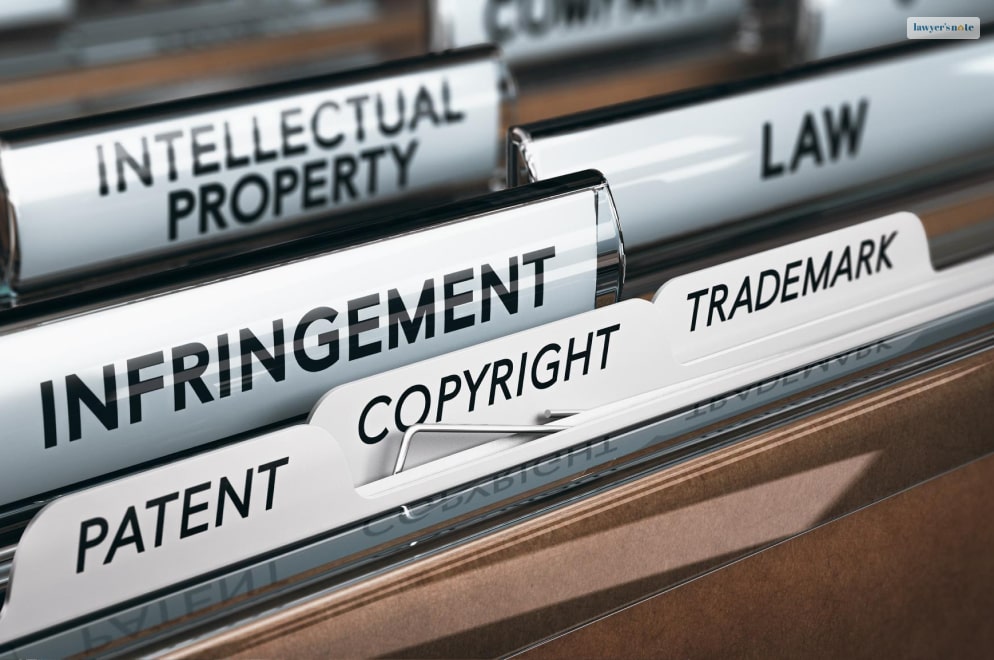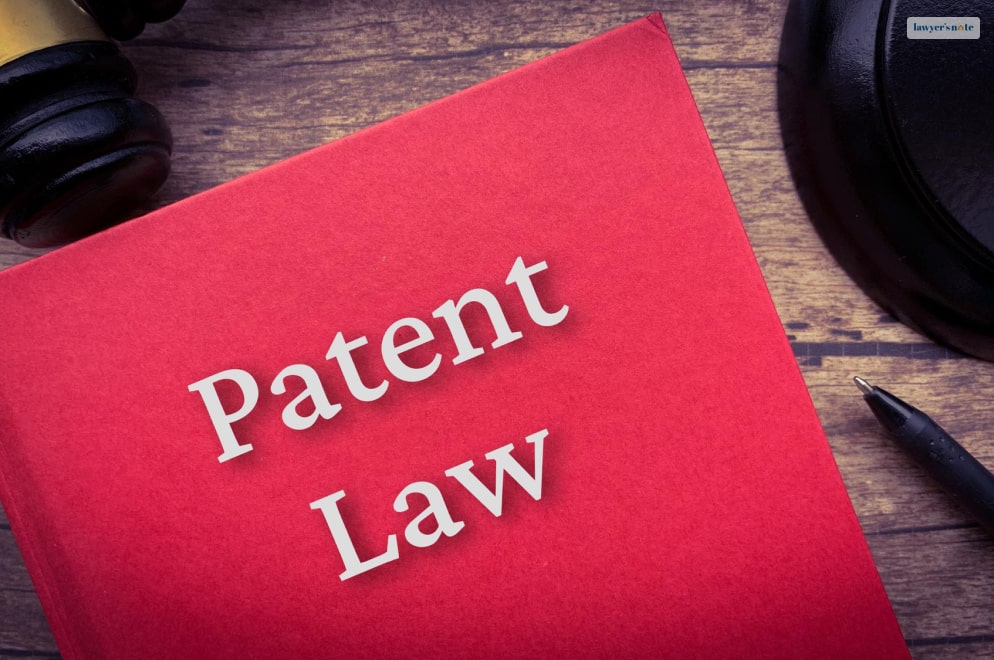Everything You Need to Know Before You Accept License Agreement in Rocket League
Have you ever noticed how lengthy legal documents are presented when you sign up for a new app or game?....
By LawyersNote
12 Feb 20241559 Views

Have you faced a similar problem where your technology, that you developed by working so hard, was copied by others? Are you a business having technology that sets you apart from competitors? Do you want legal protection for your unique invention? Do you want to get licensing agreements or partnerships with top-notch companies through your patented products? Moreover, do you want to prevent others from copying your invention?
Well, patent regulations and law come to your rescue. Patent law is a set of rules and regulations that govern the protection of new inventions and unique creations. It grants inventors exclusive rights to their innovations. Moreover, allows them to prevent others from using, selling, or profiting from their ideas without permission. Similarly, It allows creators to control and profit from their creations for up to a period of 20 years. Patent Law allows you to get rewards for your innovations. Moreover, It urges one to put effort and strive for technological advancements, get patents on their inventions, and also earn money out of it.

A patent is a legal protection granted by the government to inventors for their new creations. A patent is an exclusive right that an inventor has on their creation. Moreover, they can control and use their invention, preventing others from making, using, selling, or copying it without their permission. Patents help encourage creative minds to come up with new innovations.
Ever wondered what fuels the engines of innovation? Spoiler alert: it’s not just coffee and late-night brainstorming sessions. It’s something more official, more legal—cue the superhero theme—Patent Law! Let’s dive into the world of patents and unravel why they’re the unsung heroes of innovation.
Imagine you’ve brewed up a potion that can turn plants into instant skyscrapers (a bit far-fetched, but bear with me). Without patent protection, Mr. Sneaky McCopycat from across the street could snatch your potion recipe, start his skyscraper farm, and leave you with a garden of despair. Patent laws act as the superhero cape that shields your groundbreaking ideas, giving inventors the power to control who gets to play in their innovation sandbox.
Innovation isn’t for the faint-hearted. It requires time, money, and a dash of crazy optimism. Enter patents, the golden carrot dangling in front of inventors, encouraging them to take that leap of faith. By granting exclusive rights to the innovator, patents ensure that they can reap the rewards of their hard work. It’s like saying, “Hey, take a risk, and if it pays off, the golden pot at the end of the rainbow is all yours!”
Now, you might be thinking, “Wait, isn’t patent law all about exclusivity?” True, but it’s a bit of a Robin Hood situation. Patents aren’t just for keeping others out; they’re also about sharing knowledge. Once a patent expires, the innovation becomes fair game for everyone. It’s like the gates to Willy Wonka’s chocolate factory swinging open, allowing others to peek inside, learn, and maybe cook up something even more extraordinary.
Picture a world without patents. It would be like a construction site without hard hats—a chaotic mess. Patents provide a blueprint for progress. They document the steps, materials, and secret ingredients that make an invention tick. This treasure trove of information isn’t just for show; it becomes the building blocks for future innovations. One patent today could spark a hundred new ideas tomorrow.
In the cutthroat world of business, everyone wants a slice of the success pie. Without patent laws, it’s a free-for-all buffet, and the original creator is left with crumbs. Patents act as the bouncers of the innovation nightclub, ensuring that only the inventors and their approved guests get VIP access. This exclusivity is what keeps innovation from turning into a clone army of sameness.

According to the patent laws of the USA, these are the requirements that you should check off your list to get a patent on your invention.
If you have to get a patent on your invention, the invention must be new. Moreover, anywhere in the world, people should not be aware of this invention or be using it before the date of the patent application.
Moreover, if the invention you want a patent on has already been in public knowledge or even sold more than a year before the date when you file for the patent, it has no novelty.
The invention should not be an obvious improvement on existing technology or knowledge. Moreover, it must involve some level of creativity on your part and uniqueness that makes it different from what is already known publicly.
The invention must have a practical and useful purpose. Similarly, it should be capable of some kind of useful function or application. Moreover, it should not be purely abstract or theoretical.
Not all types of inventions are eligible for patents. These are the subject matters on which you cannot get a patent. a. Laws of Nature. Moreover, This can include natural phenomena or principles, such as gravity, electromagnetism, and mathematical formulas, which cannot be patented.
These can include natural occurrences, like lightning, earthquakes, or naturally occurring substances, which cannot be patented because they are not inventions, technically.
Certain things cannot be patented, such as mathematical algorithms, mental processes, and philosophical concepts. These types of concepts are not considered eligible for patents. They’re more like thoughts or ideas instead of physical, tangible inventions.

The United States’ federal patent laws are the guidelines governing the allocation of patents to inventors for their innovations. These laws encompass several key statutes that play a vital role in patent issuance and regulation.
This fundamental law outlines what can be patented, the patent acquisition process, and the rights granted to patent holders.
This act brought changes to the patent issuance system, simplifying patent challenges and introducing a “first-inventor-to-file” approach.
An international agreement facilitating patent filings across various countries.
This law lets universities and small businesses keep the rights to inventions made with government funding.
Designed to address discrepancies within the 2011 AIA.
Aims to curb unjust patent litigations and enhance patent quality.
All these statutes serve to safeguard inventors’ interests, foster innovation, and more. They even promote the development of new inventions and innovations across the United States.
Additionally, they collectively create a regulatory framework to encourage creativity and protect intellectual property rights in the nation’s patent system.

A Patent Lawyer helps decide if your invention qualifies for a patent by checking if it’s unique, not obvious, and useful.
They create and file the necessary legal papers to secure a patent for your invention.
The lawyer manages conversations with the patent office, addressing queries or clarifications during the application.
They protect your invention from unauthorized copying or usage by others without your permission.
A Patent Lawyer helps decide if your invention qualifies for a patent by checking if it’s unique, not obvious, and useful.
They create and file the necessary legal papers to secure a patent for your invention.
The lawyer manages conversations with the patent office, addressing queries or clarifications during the application.
They protect your invention from unauthorized copying or usage by others without your permission.

First, you have to write down all the details and drawings of your invention. This should show how it works and what makes it unique.
Begin by researching if there are inventions similar to yours. Explore existing patents related to your invention.
Determine the specific kind of patent suitable for your invention, whether it’s a utility patent, design patent, and so on.
Obtain a formal template for patent applications. You can either download one online or create it with guidance from a patent attorney. Ensure this document contains all essential details about your invention.
Read More:

Have you ever noticed how lengthy legal documents are presented when you sign up for a new app or game?....
By LawyersNote
12 Feb 2024
If you are wondering about the concept of prescriptive easement, you are in the right place. Prescriptive easement is a....
By LawyersNote
30 Jan 2024
Intellectual property rights in USA refer to the legal rights and protections that individuals or entities enjoy. These rights arise....
By LawyersNote
19 Dec 2023